Last imported great bustard chicks released in Wiltshire
- Published
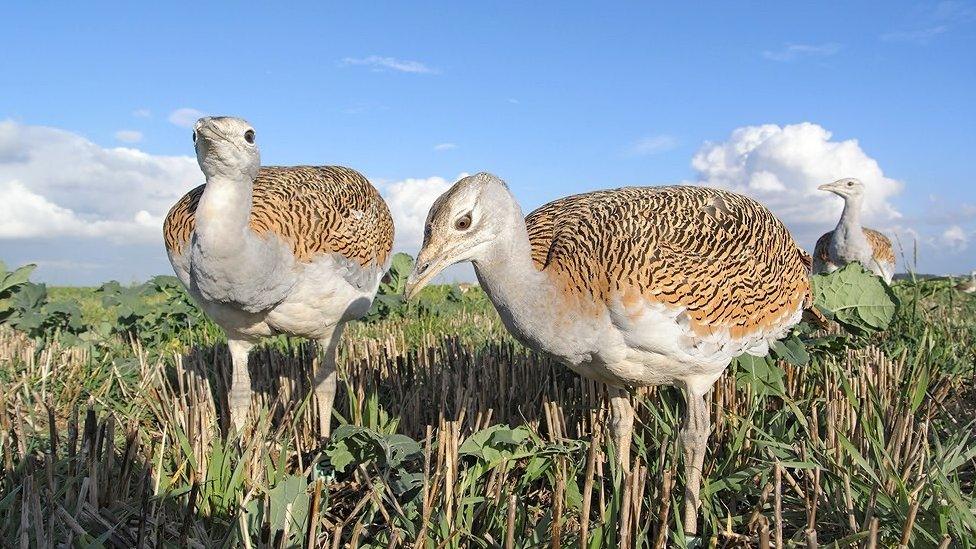
Over the last 15 years, hundreds of birds have been released on Salisbury Plain
The last UK hand-reared great bustard chicks have been released into the wild.
Over the last 15 years, hundreds of birds have been released on Salisbury Plain in Wiltshire by the Great Bustard Group (GBG).
The world's heaviest flying bird was hunted to extinction in the country, with the last one shot in 1832.
Since 2004, the group has imported eggs and chicks from Russia and Spain then hand-reared and released them.
A "self-sustainable" population of about 100 great bustards has now been established in the UK, David Waters, from the GBG, said said.
"A lot of experts said it was impossible but we've done it - the only new population to have ever been created."
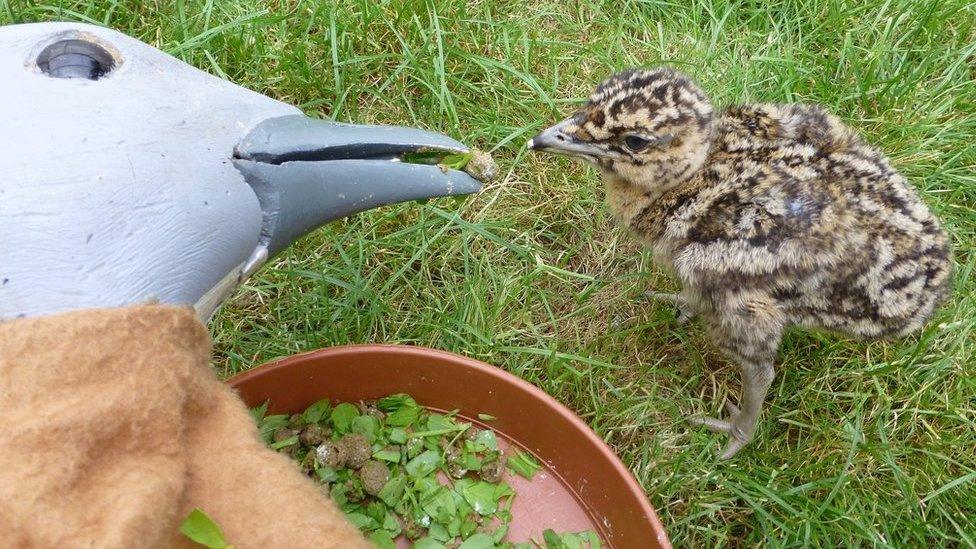
Great bustards are reared using techniques such as puppet gloves to avoid the chicks imprinting on humans
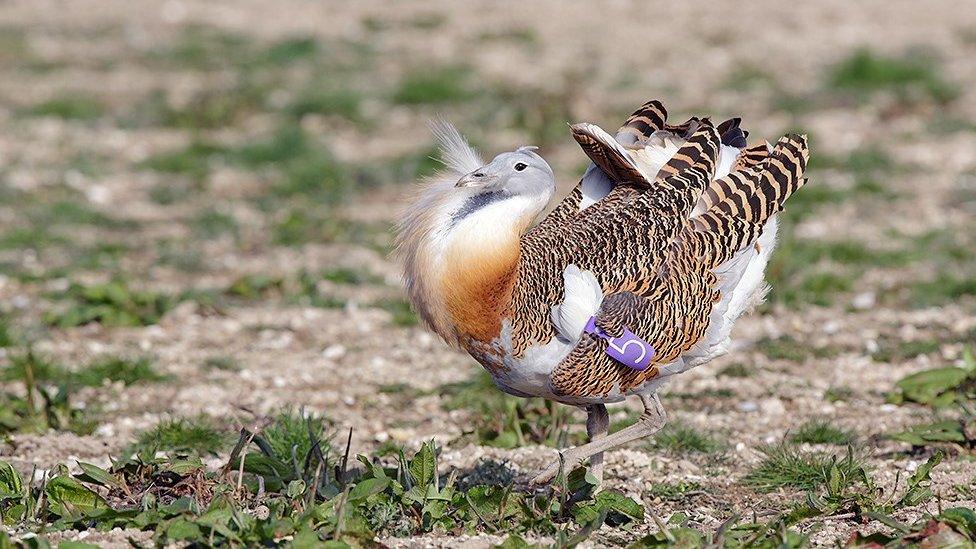
An adult great bustard can be up to 3ft (1m) tall and weigh up to 44lb (20kg)
Mr Waters, who set up the GBG 20 years ago, added he was "pleased and proud" it had established the first "new great bustard population anywhere in the world."
"Almost all environmental news is bad at the moment and we've got some good news," he said.
"We're a small group with pretty much everything done by volunteers and it shows individuals and small groups can make a difference."
An adult great bustard can be up to 3ft (1m) tall and weigh up to 44lb (20kg). Its wingspan can reach nearly 8ft (2.4m).
The success of the project has also prompted interest from elsewhere.
"Having seen the success of this project there's a lot of interest to try and get great bustards back in old bustard haunts like Dorset, Norfolk and Yorkshire," Mr Waters said.
"And of course we'll continue looking after the Wiltshire population - we'd like to see it reach 200 and 300 and keep going."
- Published2 January 2019
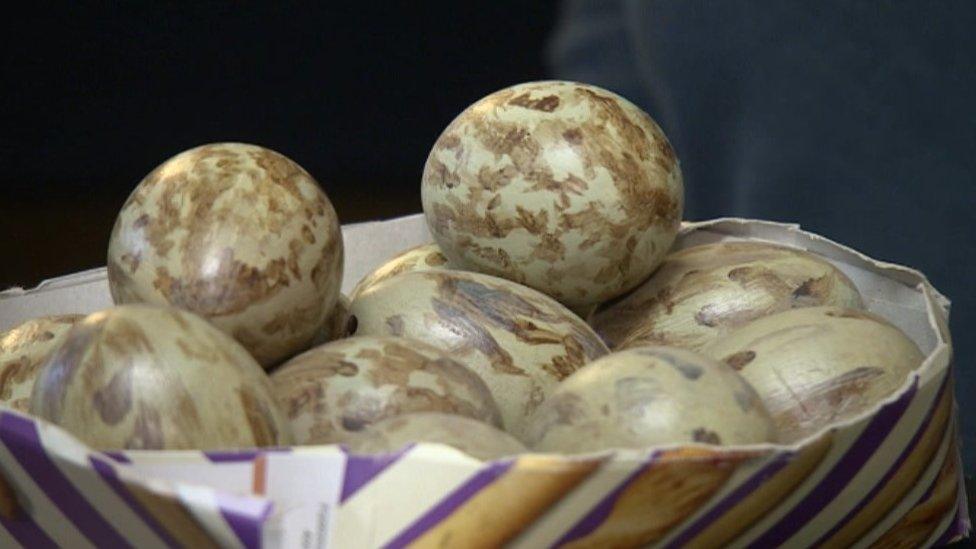
- Published18 March 2017
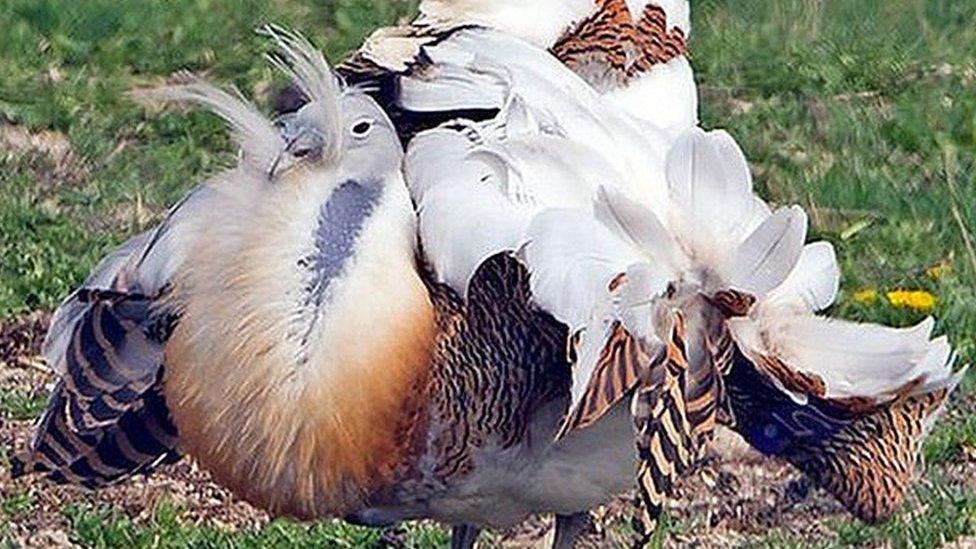
- Published2 June 2016
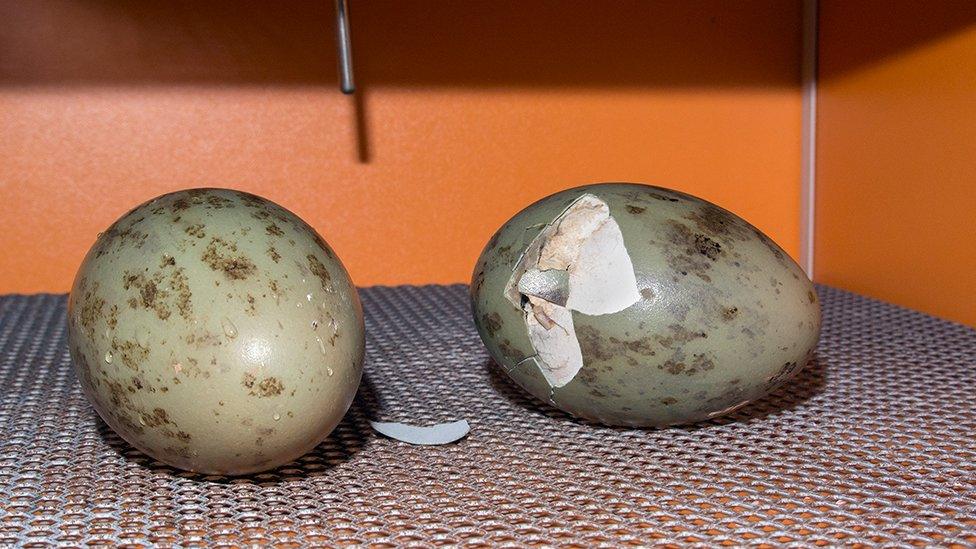
- Published24 July 2014
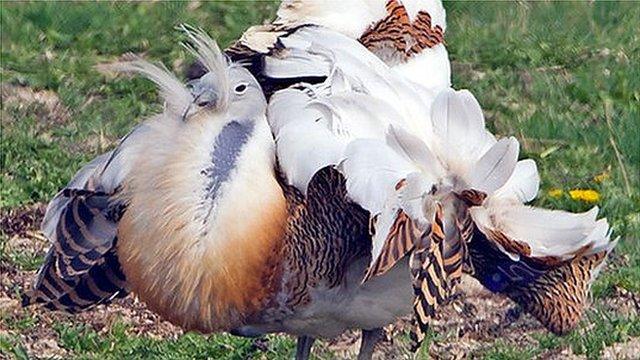
- Published12 July 2012
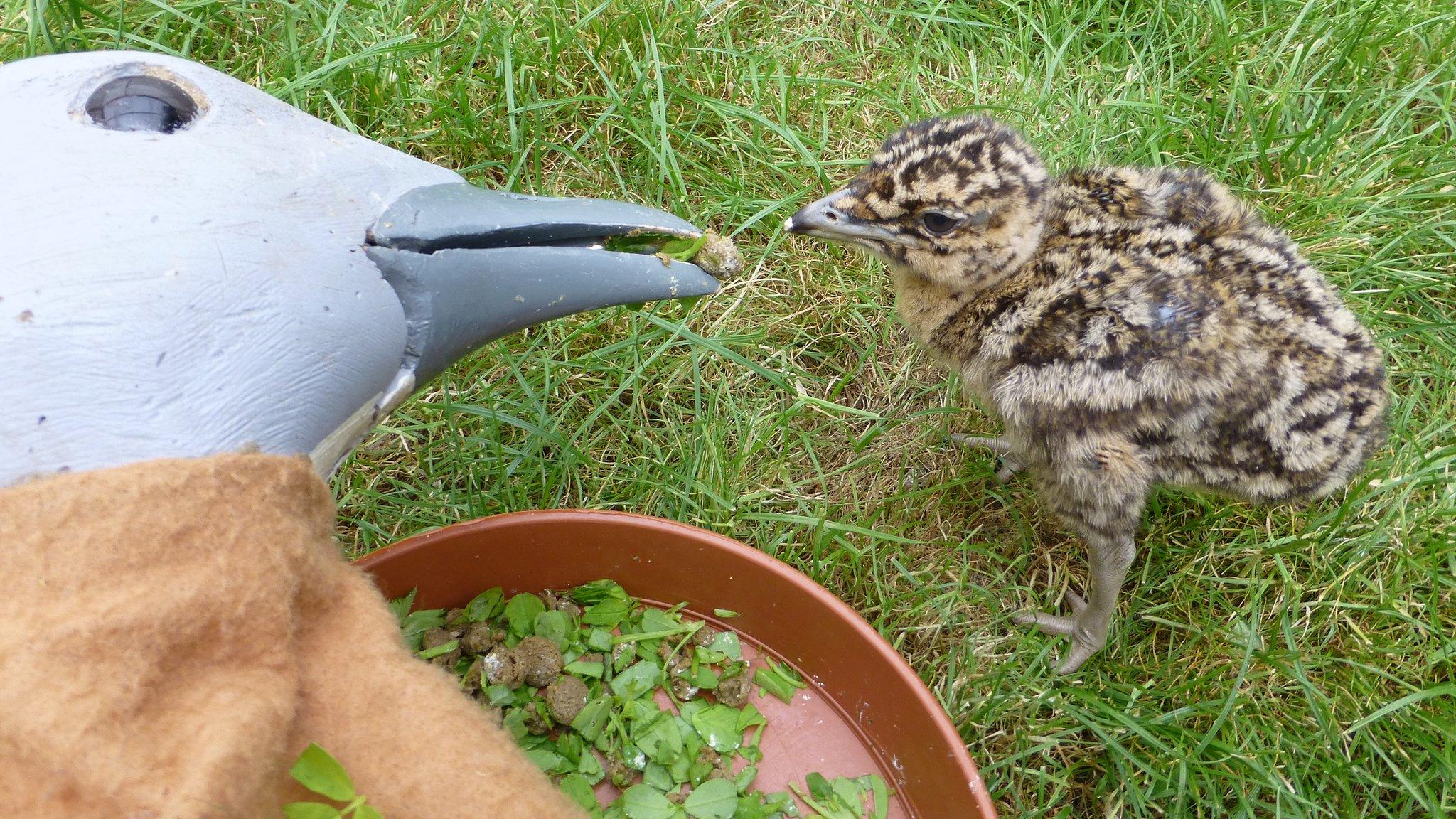
- Published29 May 2012
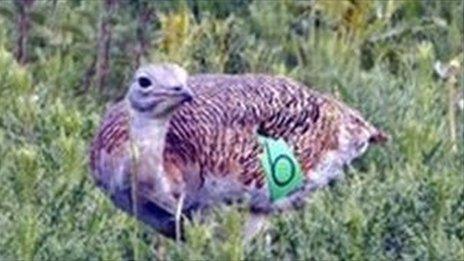
- Published12 September 2011
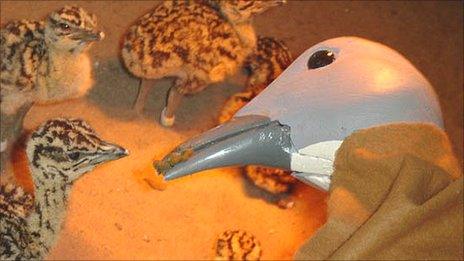
- Published19 January 2011